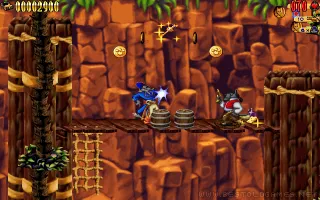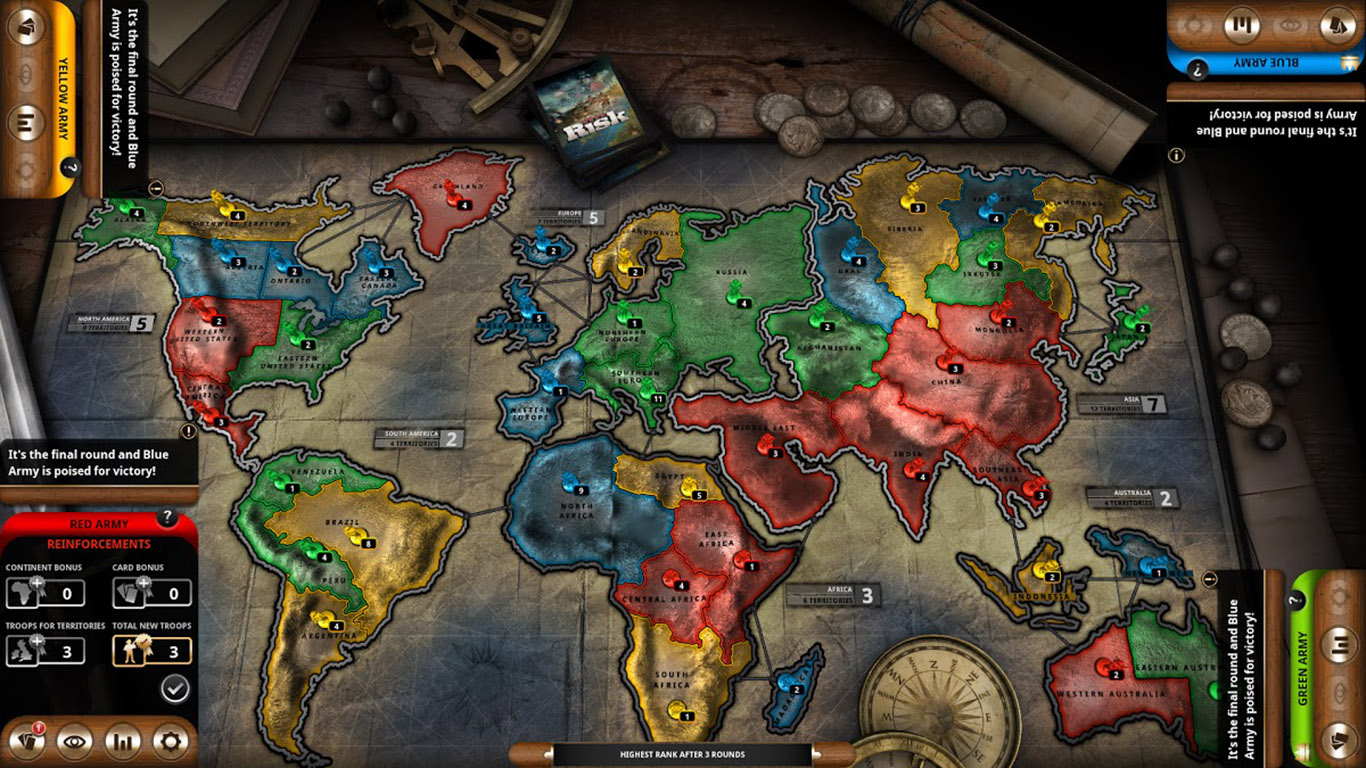

There are five ranks of the 12-sided dice, called "battle dice", from white to black. Same-time Risk doesn't use the classic six-sided dice instead, it uses a completely new die rule - the attacker and defender each gets one 12-sided die that has a certain amount of number values on it, depending on the size of the army. In addition, multiple neighbors can now attack one country, giving an advantage to the player who owns the most of any country. Thus, attacking armies have to be considered carefully, as sending your whole army on an attack leaves your country vulnerable to an attack from a neighbor. During this period of time, armies on the offensive that have yet to attack are considered en route to the country they will be invading and cannot defend their home country. Each phase lets you set up your armies and attacks, then the conflict begins once everyone has submitted their battle orders. Instead of having individual player turns, same-time Risk is now split into phases. While the mode uses only a slightly different map and set of rules, its differences and subtle nuances are enough to throw off even the most brilliant of Risk strategists. The same-time mode is essentially a brand-new game.
#Risk pc game 1997 download series#
There's the classic mode, which you play using the rulebook of the board game the same-time mode, which eliminates individual player turns and instead determines the results of all players' attacks simultaneously and a tournament mode, which is a series of both classic and same-time games that awards points for completing certain objectives. Risk II now comes in three different variations of Parker Brother's classic board game. Fortunately, the sequel to the strategist's strategy game is something of an exception to the rule, as it not only stays faithful to the original gameplay, but it also presents some pleasant new spins on the classic Risk formula. Either the computerized version no longer plays anything like the original board game, or there's not enough difference to even warrant a computerized release.

When it comes to computer versions of board games, you'll almost always get a compromise.


 0 kommentar(er)
0 kommentar(er)
